May 19, 2025 | 12:03 GMT +7
May 19, 2025 | 12:03 GMT +7
Hotline: 0913.378.918
May 19, 2025 | 12:03 GMT +7
Hotline: 0913.378.918
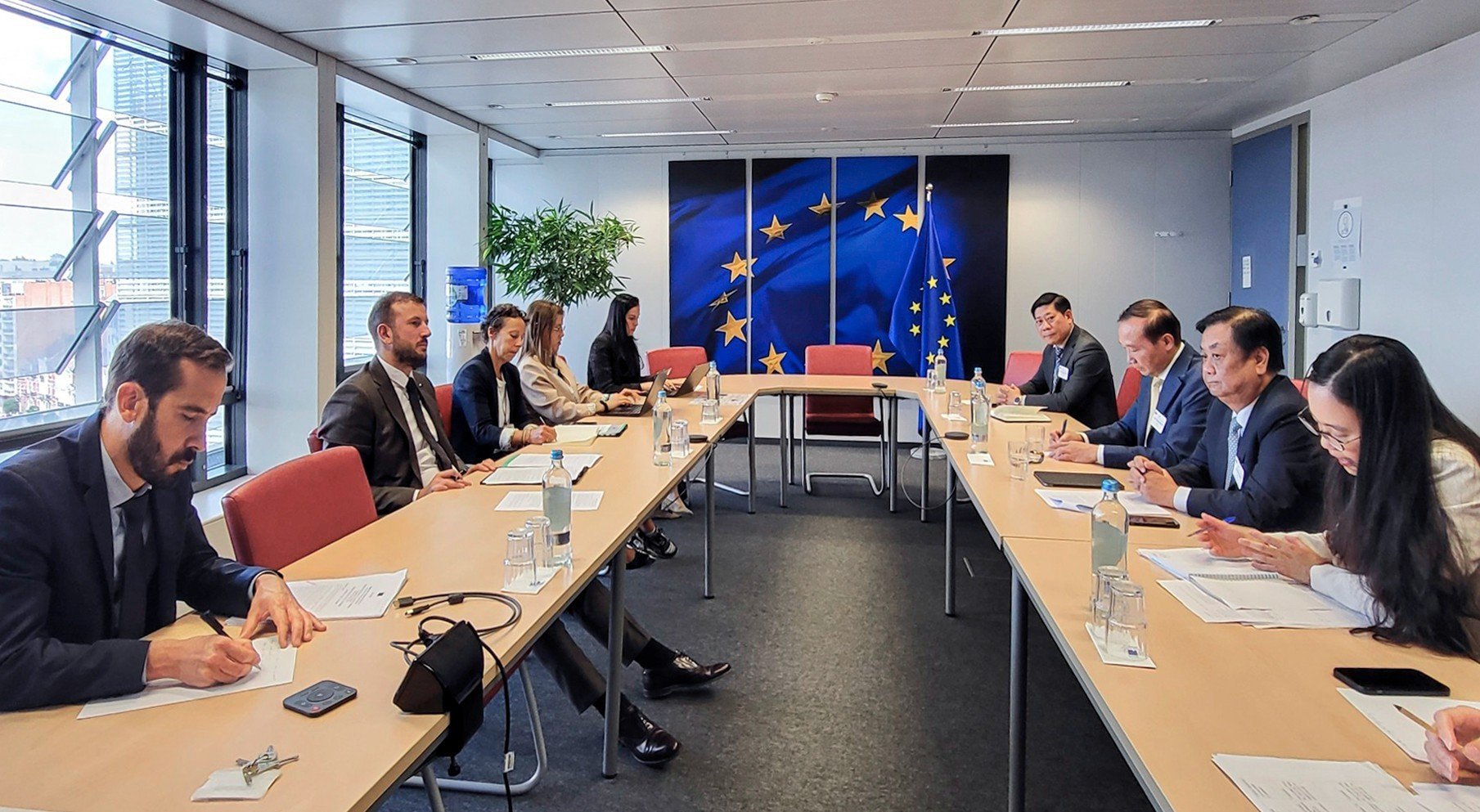
Minister Le Minh Hoan led the delegation of the Ministry of Agriculture and Rural Development to visit and work with agencies of the European Commission in Brussels, Belgium on September 18. Photo: Anh Tuan.
In an effort to mobilize the EU to remove the yellow card on illegal, unreported, and unregulated (IUU) fishing activities before the IUU inspection team arrives in Vietnam to conduct the fourth examination, the MARD working group led by Minister Le Minh Hoan visited and met with European Commission on September 18.
During a working session on September 18 in Brussels, Belgium with the European Commission for Environment, Oceans and Fisheries and the Directorate-General for Maritime Affairs and Fisheries (DG MARE), MARD Minister Le Minh Hoan discussed Vietnam's stance on IUU issues. Vietnam considers the fight against illegal, unreported, and unregulated fishing (IUU) to be the prime mission of the industry, not only serving EU exports but also casting opportunities for the development of sustainable aquaculture and seafood exploitation, demonstrating Vietnam's responsibility and preserving the country's international standing.
In addition to defining the yellow card, the issue is an opportunity for the fishery exploitation sector to transition from traditional, small-scale, tropical, multi-career, multi-variety fisheries to sustainable and accountable fishery management.
Regarding IUU management, Minister Le Minh Hoan reaffirmed Vietnam's political resolve to implement all recommendations of DG MARE on the prevention and abolition of IUU exploitation, thereby advancing a sustainable fishery.
Under the lead of the Party, the direction of the National Assembly, the Government, with a goal to develop a sustainable, international integration, responsible fishery, and remove the EC yellow card, the whole political system has proactively worked to establish and implement a plan which is synchronous with goals and detail solutions throughout the system from the central to the localities, groups, fishermen community seafood, association, and enterprises.
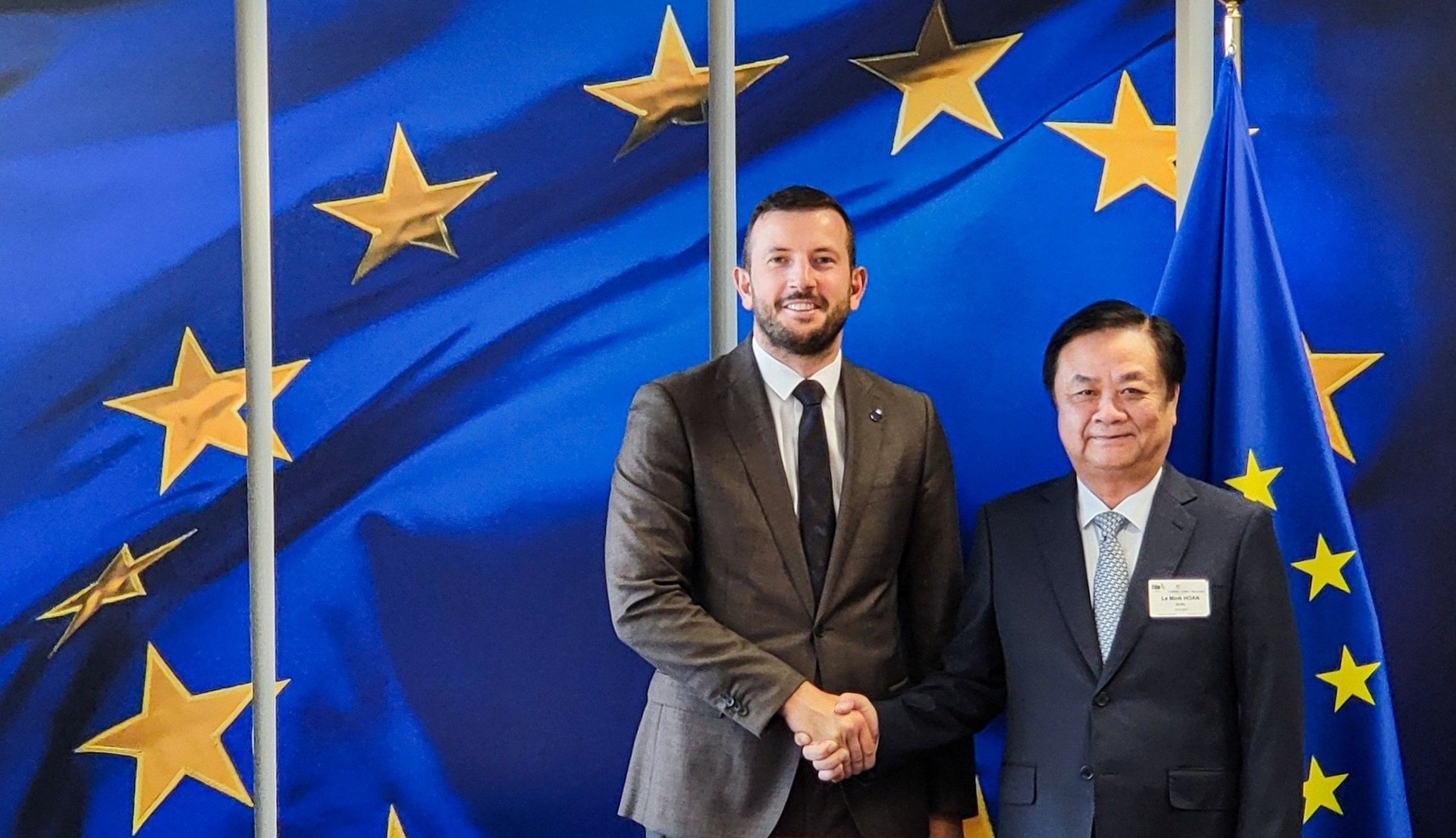
European Commissioner for Environment, Oceans and Fisheries Virginijus Sinkevičius welcomed Minister Le Minh Hoan. Photo: Anh Tuan.
Vietnam's political system as a whole has brought about a number of noteworthy results to date.
First, it reaches a consensus on the highest level of awareness and the most drastic actions of all levels, sectors, fishermen communities, and businesses, as well as the consensus of the entire society on the implementation of the regulations as well as the regulations and recommendations of the European Commission for preventing illegal and unreported seafood exploitation activity.
Second, it has disseminated a comprehensive legal framework for fishery management and combating IUU fishing. The National Assembly and the Government have recently tightened sanctions for violations of IUU regulations.
Building and operating a national database on fishing vessels (registration, granting permission to exploit seafood) connecting from the central to the localities, connecting to the legal forces including Fisheries Inspection, Border Guard, Sea Warning, and fishing port management facilities to control the activities of fishing vessels are examples of the shift in fishing vessel management activities. Over 98% of fishing vessels with a length of 15 meters or more that operate in open water are equipped with cruise monitoring equipment.
Fourth, the origin of seafood has been traced and regulated in accordance with the chain from volume control through ports issuing export certificates and regulating raw materials at processing plants.
Materials imported to Vietnam have been regulated in accordance with the Agreement on Port State Measures (PSMA), and in the near future there will be a post-import verification of the legitimacy of marine products from container importation.
Fifth, law enforcement and the sanctioning of administrative violations have been actively deployed by law enforcement forces at sea in a number of locales. Since 2015, the number of ships violating foreign waters has decreased substantially. The number of fishing vessels captured and handled illegally fishing in foreign waters has decreased by 84.35 percent since 2016; this has prevented and stopped fishing vessels from violating Pacific island nations and countries from 2018 to the present.
Six, Vietnam is actively implementing programs and projects to transform the sustainable fishing industry in order to create a foundation for fleet management that is consistent with the current status of the resources and to convert some fishing occupations that have an impact on resources and the ecological environment.
Minister Le Minh Hoan stated that Vietnam has a strategy to reduce fishing efforts, reduce the vessel fleet, and transition to developing aquaculture in order to develop a sustainable marine industry in order to implement synchronous solutions for sustainable fisheries development.
The Minister asked the European Commission to assist Vietnam in investigating aquatic resources in Vietnamese waters, implementing programs to convert a number of fishing occupations that impact resources and the ecological environment, and transforming coastal fishing communities' means of subsistence.
Additionally, supports Vietnam's participation in Blue Economy development programs and management of marine plastic refuse.
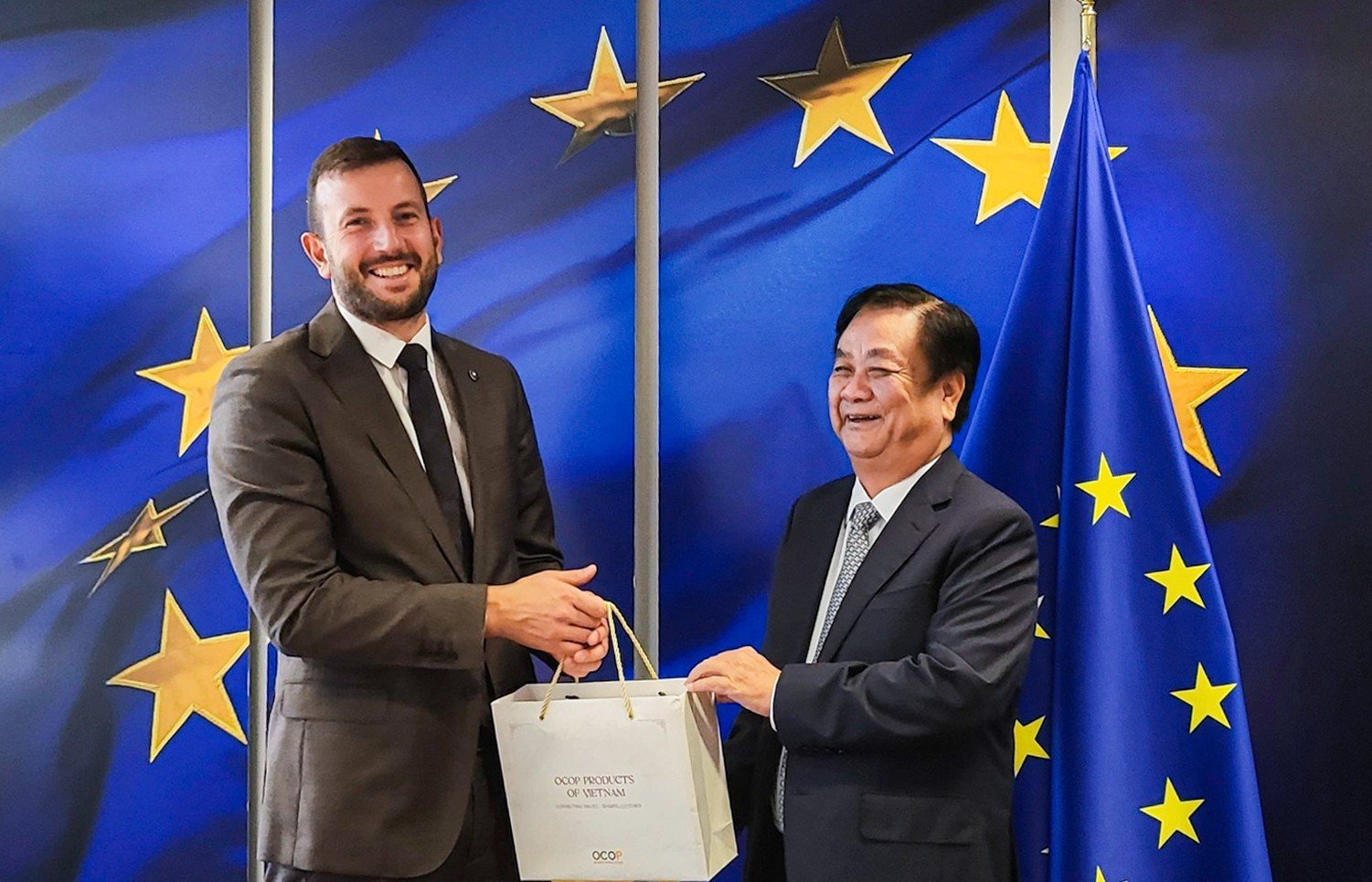
Minister Le Minh Hoan presented an OCOP product as a souvenir to the European Commissioner for Environment, Oceans and Fisheries Virginijus Sinkevičius. Photo: Anh Tuan.
Partners of the European Commission praised the visit of Minister Le Minh Hoan, stating that it clearly demonstrates Vietnam's determination and political will and provides an opportunity for direct exchanges between the two sides to better comprehend the difficulties in the enforcement process against IUU fishing.
The Commissioner for Environment, Oceans and Fisheries, and DG MARE expect that Vietnam's approach to dealing with IUU yellow cards and developing a sustainable fisheries industry will serve as an example for the rest of the world. Vietnam's legal framework for fisheries management and combating IUU fishing is entirely compliant with international standards. The situation of fishing vessels violating IUU fishing in foreign waters, although it has decreased compared to the past, remains a deficiency in enforcement; law enforcement is not synchronized between localities. No exceptions should be made for violations; seafood exploitation capacity remains high; there must be a balance between aquatic resources and exploitation capacity.
The European Commission will assist Vietnam in developing sustainable fisheries. In accordance with the EU's strategy for sustainable development, such as green agreements, circular economy, and circular fisheries, the EU will issue guidance on sustainable fisheries development. The EU desires Vietnam to become a global leader in the sustainable development of the fisheries industry and the fight against IUU fishing.
The EU Commissioner for Environment, Oceans, and Fisheries has announced that he will visit Vietnam at the beginning of 2024, signifying a new spring for sustainable development cooperation between Vietnam and the EU.
Translated by Linh Linh

(VAN) The German Agricultural Society (DLG) explores the possibility of establishing a mechanization service center in Vietnam’s Mekong Delta to support farmers in accessing and utilizing advanced machinery.

(VAN) On May 16, the Department of Water Resources Management, in collaboration with the Food and Agriculture Organization of the United Nations (FAO), held a signing ceremony for the GEF-8 project document.

(VAN) Food safety, mechanization, vocational training, and market opening are key areas of cooperation expected between the Vietnamese Government and the Federal Republic of Germany.

(VAN) Deputy Minister Nguyen Quoc Tri also expressed his hope that Cuba will soon overcome its current challenges, attain food security, and further expand cooperation with Vietnam.

(VAN) The project contributes to enhancing the resilience of communities vulnerable to the impacts of climate change, with a primary focus on local women.
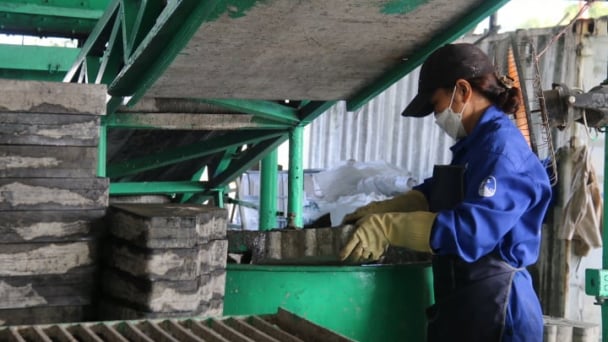
(VAN) Green materials help save energy and resources. However, after more than 10 years, Vietnam has only developed over 200 green buildings with more than 6 million square meters of floor space.
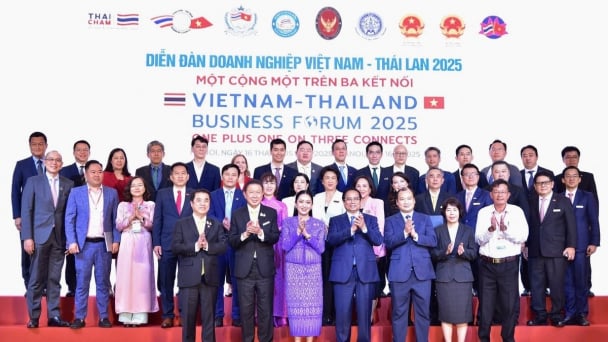
(VAN) Vietnam - Thailand Business Forum 2025: One plus one on three connects, marking a milestone in the comprehensive strategic partnership between the two nations.